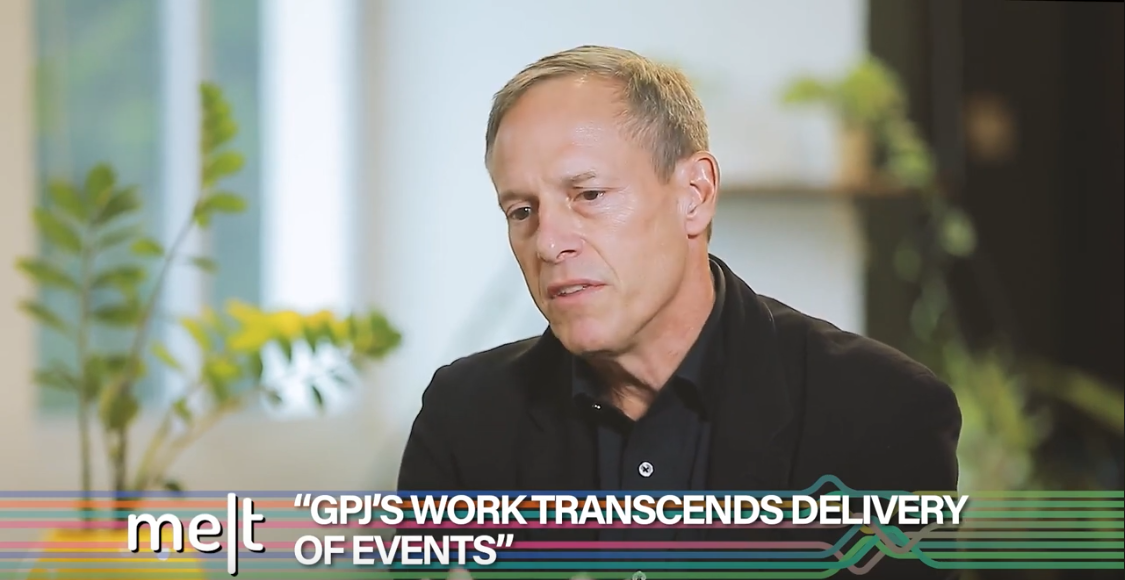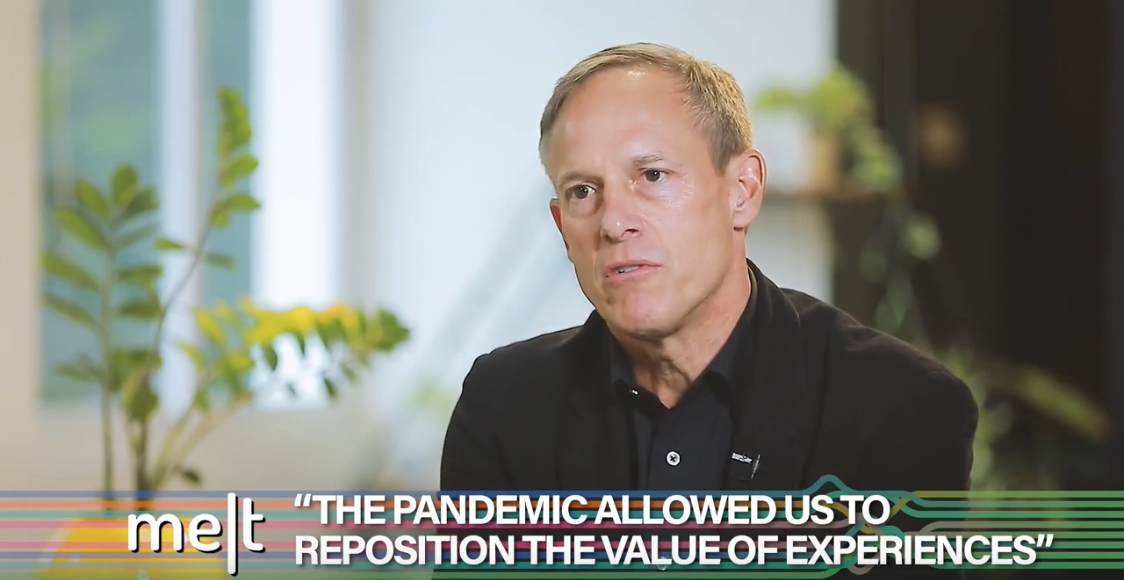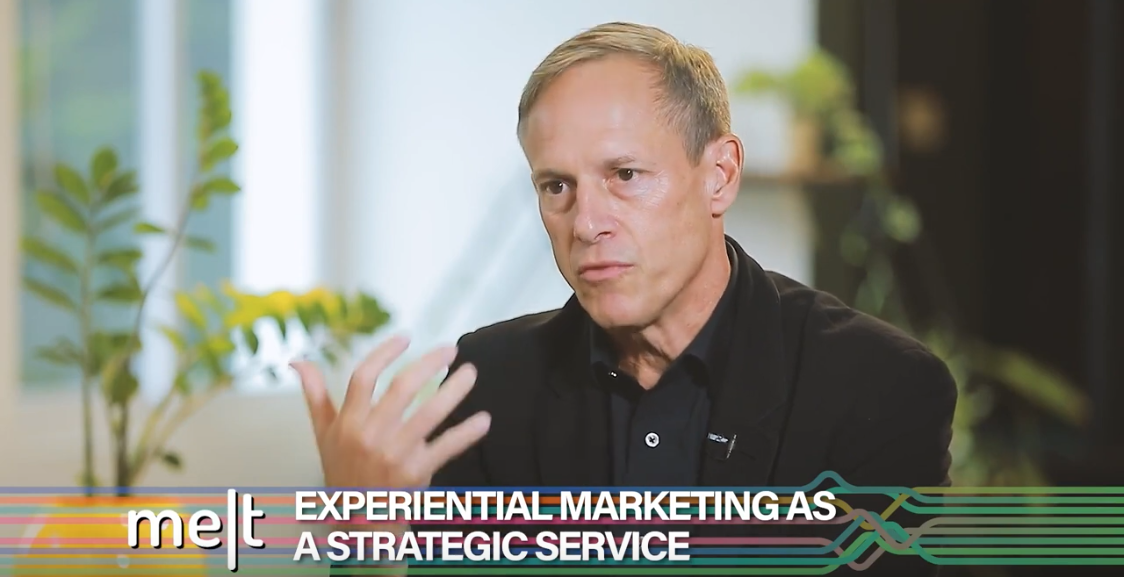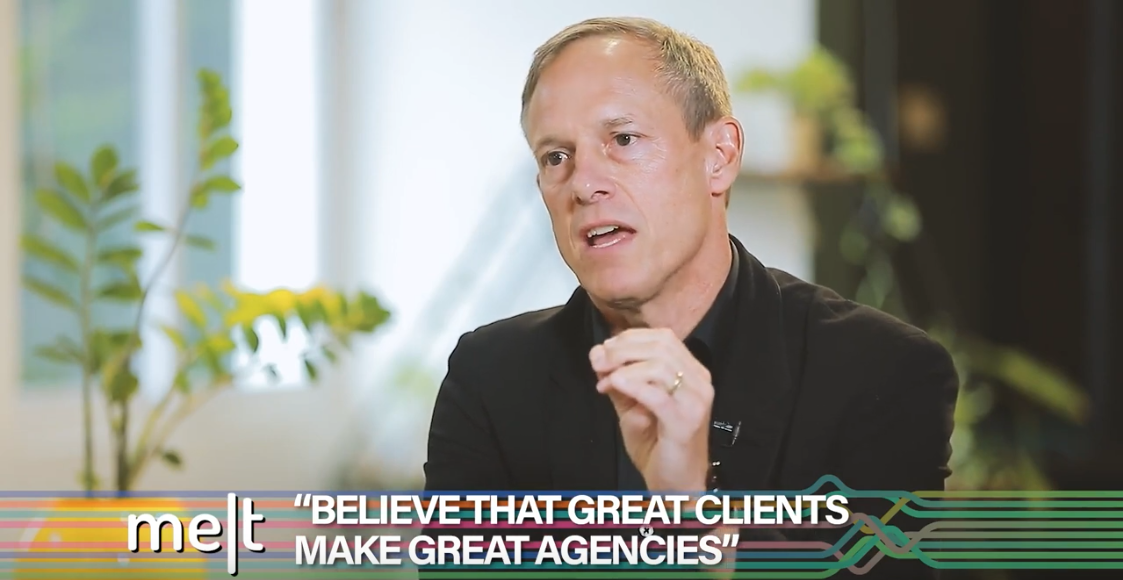Recently, GPJ CEO Chris Meyer had an opportunity to discuss our agency’s global milestones with Ready to Melt host, Suresh Vinkat, offering a chance to talk at-large about the global trends in experiential marketing and the hottest topics that will inform event strategies in the year ahead. Here is part one of the interview:
Last month global experiential agency George P. Johnson (GPJ for short), celebrated 20 years in India. Known for their work on both B2B and B2C brands such as IBM, Salesforce, Nissan and many others, the agency champions the use of activations and experiences to engage audiences. To know more, we spoke to Chris Meyer, the CEO of George P. Johnson, discussing what are some of the global trends in experiential marketing and how relevant they are to the Indian market.
Suresh: Chris, you’re here to celebrate 20 years of GPJ in India, how’s the journey been?

Chris: It’s been an amazing journey here for 20 years in India and these memorable moments have really been about the team. It’s a testament to the culture of the agency that our leadership team has pretty much been here since the beginning.
In any agency environment it’s about the people and we couldn’t be prouder of the core team that’s here and the entire team that we have built here in India.We’ve used India not only to support the market for a lot of our global clients as well as regional clients, but as a hub to support the Middle East and Africa and other parts of the world using the great talent here in India. So it’s been a big win for us and for our clients.
We also couldn’t be prouder – as our industry has evolved not only globally but here in India – to see our team really bring their A-game relative to ideas that we bring to our clients and the brands, plus the ability to execute those in really innovative ways. And to do it not only from a production perspective but truly bringing business value and marketing value to our clients, means that our work transcends the delivery of events. It’s about strategic campaign management, portfolio management, digital experiences and all of the different touch points that are associated with experiential.
Suresh: Many commentators use the phrase ‘India’s decade’ to describe the next 10 years, I have two questions for you: 1.) Do you agree with that characterization, and 2.) What does it mean for a business like yours?
Chris: No one has a crystal ball, but I think there is a tremendous opportunity for India. With a lot of geopolitical things going on around the world, the opportunity for economic growth in India is tremendous. I do know that a lot of our clients, particularly our global clients, are very focused on the opportunities here in India. What that means for us in experiential is we’ll continue to see the rebound coming out of the pandemic, but significant economic growth as well. As a matter of fact, I talked to one of our senior global clients today and in many regions of the world, they’re cutting their next fiscal year budgets, but their India budget was up almost 70% relative to experiential. So all indications are that there’s a significant opportunity growing for the next decade here in India from an overall economic perspective, but particularly in experiential and that I think will transcend corporate events or organizational events. It will also roll into sports, entertainment and other experiential activities.
Suresh: Speaking of the pandemic it’s been almost three years now since the pandemic first hit us like a bolt from the blue, and one industry that was completely upended was the experiential marketing industry. How do you define the experiential marketing industry today, three years post lockdown?
Chris: Experiential post-pandemic has been a journey, both the impact during the pandemic as our industry was completely shut down for the most part–obviously we had digital experiences to keep things moving. But the recovery has been tremendous for us around the world and in the Indian market as well.

I think it’s been more difficult to scale back up to experiential than it was to scale down quite frankly. A couple other things coming out of that: I think the gap in having experiences actually helped us reposition the value of experiences through organizations to brands, because it’s always hard to exactly measure the return on investment from events. But what we learned during the pandemic, when experiences went away, there was a big gap in bringing people together that drive business and drive interactions with brands. So we see actually the resurgence when you compare to other marketing activities, especially as you get into fiscal year planning where we may have a recession in front of us, we’re actually seeing budgets hold or increase in experiential and I actually attribute some of that to the fact that we had a gap.
Beyond that, in recovering from the pandemic we’ve come out of it with much higher costs for experiential and that’s both in labor cost impacted by inflation as well as supply chain challenges. So even though we may see budgets flat in our space it actually means we have less budget because the costs are increasing. The good news about our industry, in our teams we’re seeing a lot of innovation in how we actually create unique experiences with the same budgets, even though our costs are higher. So I think net net, experiential is in a great place – it’s perceived as higher value coming out of the pandemic versus other marketing tactics though I recognize that we have higher costs and supply chain issues. I suspect the supply chain issues will be less as we go into 2023 and beyond. I think that the industry and the world is getting a grasp on them.
Suresh: The idea of the hybrid event pretty much took shape and cemented itself during the pandemic. Do you think hybrid will continue or will it be seen as a relic of the pandemic years?
Chris: I absolutely think hybrid experiences will continue. It really comes down to each brand or organization: what’s their strategy? Is distribution of content that comes out of events important to them? I would say for the majority of our clients it’s very important and we’ve seen a significant maturity in using events as studios to create not only content that is broadcast from the event in a cinematic fashion, but also being able to capture content and leverage that for other marketing tactics, digital marketing tactics, etc. throughout the year. We believe that we’re going to continue to see events use the studios both for the real-time broadcast as well as using them to create all sorts of content that can be used throughout the year.
Suresh: Let’s talk about client relationships. You often hear of legendary relationships between clients and advertising agencies, but we don’t hear enough about clients and experiential marketing agencies. Why do you suppose this is? Is it because they see [experiential] as a transactional activity, but [advertising] as a strategic activity?

Chris: Yeah it’s interesting because the majority of our clients are relationships that are 10+ years we have one account that we’ve had for over 75 years, so I think in the case of experiential there are two categories: you’re buying at a transactional level that’s really about production partners to produce events and experiences.
The other one is a true partner that is going to help build and deliver an experiential portfolio globally, and that’s generally where we play. That’s a very strategic role that is treated programmatically, it’s treated strategically. It involves not only the production but it involves the strategy, the creative, the content and then the production, distribution and broadcast of all of that content. So I think that there is continued opportunity for our industry to mature relative to the role events and experiential plays in the marketing mix. The majority of our clients from a key stakeholder executive perspective understand the power of experiences, and how to use that not only as a marketing tactic but use it to help them build their business.
Suresh: A lot of marketers watch our shows, so what do marketers need to know about long-standing relationships with experiential agencies?
Chris: Great clients make great agencies, and when I look at where we truly have the strong strongest relationships and we deliver the greatest results, it really is about understanding roles and responsibilities: having a clear vision and strategy that aligns to the corporate needs, business needs, as well as marketing needs.

You need to ensure that your agency partners provide the right solutions and the right geographical coverage to do that. I think for brands, my advice is don’t look at your event portfolio or experience portfolio as a series of projects, look at it as a program.
Suresh: As a strategic whole.
Chris: Right, just like you would treat going into an advertising campaign with the right strategy and the right creative and the right partners, the same thing needs to apply to experiential.
Suresh: Are Indian clients any different from your non-Indian clients or are clients ‘clients’ everywhere?
Chris: I don’t see any big difference, obviously there are cultural differences around the world,. As far as experiential I think it’s similar around the world. As a matter of fact, coming out of the pandemic because there were so many digital global programs, we are seeing more global collaboration now as we return to physical events around the world. That applies to the brands we work with, as well as how we work as a global agency.
Suresh: We also hear of clients in-housing certain functions. Digital for instance, online marketing and some portions of the experiential marketing piece are being in-housed or are shopped around for more affordable solutions. Does this trend worry you at GPJ?
Chris: No, I think the clients having in-house services is part of the norm for us. If you use creative as an example, we have to have great creative partners inside the brand, and allow us to take and translate that into how it works in the experiential portfolio. The best relationships and the best results occur when it is a true blend of in-house agency services as well as external agencies. I don’t see a trend away from that. Relative to specific needs that are very tactical as far as delivery for events or experiences, we’ll probably continue to see those bought by the drink, but in having strategic relationships that drive business results and marketing results I think that will continue to see a really strong collaboration between in-house department services and agencies.
Read Part 2 of Chris Meyer’s interview.
